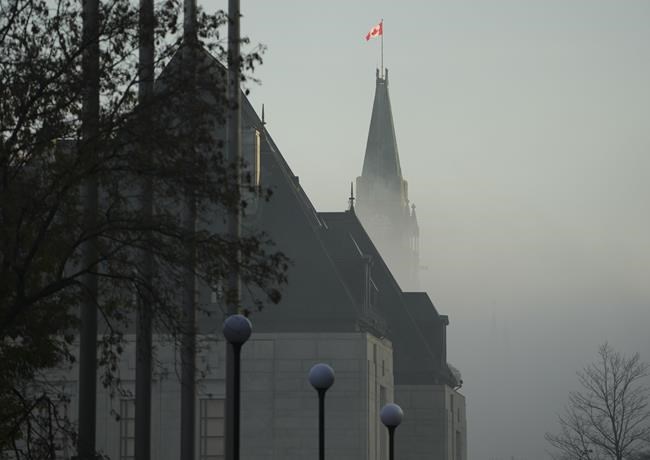OTTAWA — The federal government is being urged to follow through with its commitment to develop a Black Canadian justice strategy.
The Liberal government committed to creating such a strategy in the 2021 election campaign after advocacy groups and the United Nations raised serious concerns over anti-Black racism in the Canadian criminal justice system.
Black Canadians are consistently overrepresented in Canadian jails: Black people make up less than four per cent of the Canadian population but about eight per cent of the federal prison population.
Justice Minister David Lametti’s office said he is working with members of Black communities to develop the strategy and will have "more to say on this soon."
"The priority in doing so is for Black Canadians to have access to fair and just treatment before the law," said Lametti’s press secretary, Diana Ebadi, in a written statement.
"Canada’s Black Justice Strategy will put us on a path toward a more just and equitable society by addressing systemic discrimination and the overrepresentation of Black people in the criminal justice system, including as victims of crime."
According to the Black Legal Action Centre, police are more likely to stop, search, charge and arrest Black people. Police are also more likely to use force or seriously injure Black people.
The House of Commons public safety committee said in a 2021 report that systemic racism in policing was a "real and pressing problem to be urgently addressed."
It recommended creating a national strategy to address the disproportionately high rates of racialized people in the criminal justice system.
Mukisa Kakembo, a lawyer with prisoner advocacy group PATH legal in Nova Scotia, said it is important the federal government recognizes racism is systemic and it is one of the reasons why Black Canadians are overrepresented in the criminal justice system.
"It's important to have a strategy that recognizes that and actually takes tangible steps to address that racism and counteract the racism," she said.
Kakembo said the strategy needs to include better oversight of police and courts to make sure instances of racism are properly reported and treated seriously.
She said steps should also be taken to remove Black people who are currently in prisons and jails.
"If we can acknowledge that Black people are overrepresented in the criminal justice system, then I think action needs to be taken to rectify that," she said.
She said that can be done by ensuring more people are granted bail with fewer conditions attached once they are released, and by reducing the over-surveillance of Black communities by police.
"Deciding whether a case moves forward or not is up to Crown discretion," she said. "Crowns need to be actively anti-racist in their decision to prosecute, and also be aware of referring Black accused to diversion programs and trying to resolve charges outside of the criminal justice system."
There have long been calls to improve the system, including by the Parliamentary Black Caucus. In 2020, it released a statement calling on the federal government to implement a Black Canadian justice strategy.
In 2016, a UN expert panel warned it had serious concerns about systemic anti-Black racism in Canadian courts and recommended developing a strategy as well.
"There is clear evidence that racial profiling is endemic in the strategies and practices used by law enforcement," Ricardo Sunga, the head of the expert panel, said in a statement at the time.
Matthew Green, an NDP MP and member of the Parliamentary Black Caucus, said the legal system does not provide full, fair, equal justice to Black Canadians and it is not good enough for the federal government to just announce money to address the issue.
"This is a government that, come election time, speaks at length around issues pertaining to justice and equity and equality," he said.
"And yet, when it comes to actually providing policies that result in meaningful outcomes, they seem to fall short."
Kakembo said a Black Canadian justice strategy needs to also measure the action that has been taken.
"There needs to be a system of analysis of actually completing what the strategy sets out to complete, and an analysis for when that is completed," she said.
In a statement celebrating February as Black History Month, Prime Minister Justin Trudeau said the strategy is part of "work that still needs to be done."
"(The strategy) will help address systemic discrimination and the overrepresentation of members of Black communities in our criminal justice system," the statement said.
This report by The Canadian Press was first published Feb. 8, 2023.
David Fraser, The Canadian Press



